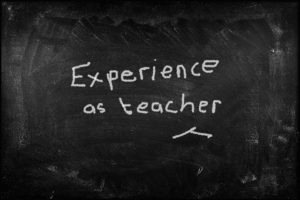
The Kalama Sutra is a famous Buddhist text describing how a community of people of the Kalama clan were visited by a stream of teachers, priests and ‘wise men’ who argued among themselves and offered everyone contradictory advice. Every time the community thought they had learnt the truth, another teacher came along and told them it was untrue. The people were confused and despondent and came to Gotama Buddha to ask his advice. This is what he had to say:
“Do not go upon what has been acquired by repeated hearing; nor upon tradition; nor upon rumour; nor upon what is written; nor upon speculation; nor upon an accepted belief; nor upon unsound reasoning; nor upon assumptions and preconceptions; nor upon another’s apparent ability; nor upon the thought that ‘this person is our teacher.’ Friends, when you yourselves understand that: ‘These ways are good; these ideas are correct; these actions are wise; if you experience that these things lead to benefit and happiness,’ practice them and abide in them.”
In other words, do not accept what you read or hear on face value. Question what you read and are told. Don’t depend on the understanding, or misunderstanding, of others, but on your own understanding. Learn from your own experience and test the accounts of other people’s experiences against your own. Gotama is not saying, ‘don’t read’ or ‘don’t study – alone, or with a teacher.’ He is saying: does what is being said make sense to you? Try to check if what is being claimed is correct – is it verifiable against other sources? Are the actions of the speaker in accord with what they say and are they helpful and wise actions? And measure the value of what you learn against the benefit it brings to you. In my view, when he refers to ‘happiness,’ he means something more than the transitory joy or happiness we may feel – that is, a more sustained feeling of wellbeing, composure and peace of mind – what is meant by the Buddhist term, sukha – wellbeing and flourishing. In other words, does what you read, hear, or learn in other ways, increase your wellbeing and the wellbeing of others – does it reduce or ameliorate suffering in the widest sense of that word?
There are many such accounts of Gotama advocating free enquiry, learning from experience, weighing up for oneself what makes sense and what works to make life more peaceful and less painful or burdensome. Gotama recommends the practice of mindful meditation as a very effective method of experiential enquiry. Gotama’s advice seems particularly relevant in this age of instant mass communication and the easy distribution of untruths, lies and misinformation. Gullibility, collective habit and passivity can so easily lead to delusion, false belief and conflict. It is important to step back from what we read and hear and to be careful about what we do accept and what we don’t. Weigh things up. Be open, thoughtful and sceptical.
A few months before his death, Gotama is reported to have said these words to Ananda, one of his closest assistants and most senior students:
‘Therefore, Ananda, you should live with yourself as an island, yourself as a refuge, and with no other refuge; with the Dharma as an island, the Dharma as a refuge, and with no other refuge.’
On the face of it Gotama Buddha seems to be offering contradictory advice. How can you have no other refuge than yourself and yet also take refuge in the Dharma? Surely it is either one or the other.
However, Gotama is simply reminding his students of the heart of his lifetime’s teaching: that understanding and awakening arise in, and though, this embodied mind, this self-island, not elsewhere. And to understand and awaken is to learn how the world is (Dharma) – in all its transitory, interdependent splendour – and to live in harmony with how it is.
Gotama continues: ‘And how does someone live like this? Well, Ananda, a person contemplates the embodied mind in all its aspects, clearly and mindfully, and puts aside all hankering and fretting for things that pass. Those who practice in this way, learning from their own experience, will become wise and free.’
In other words, through the practice of mindful learning and questioning – mindful meditation – we can become wiser and freer than without this practice.
Experience is the ultimate teacher – not Gotama Buddha or someone else. Everything that happens – all our meetings with other humans and encounters with the world – are aspects of our experience. In this way we learn from everyone, and every situation becomes an opportunity for contemplative learning. So, listen carefully, speak kindly, pay attention to what happens and come to a measured, holistic understanding – as unaffected as possible by attachment, negative emotion and delusion.
Mindful meditation can be seen as a lens or prism through which we can see more clearly what is arising from moment-to-moment. Practice mindful awareness, question what you read and are told, and trust your own experience, understanding and judgment. In this way we can take responsibility for our learning and be better able to think, speak and act wisely and compassionately.

